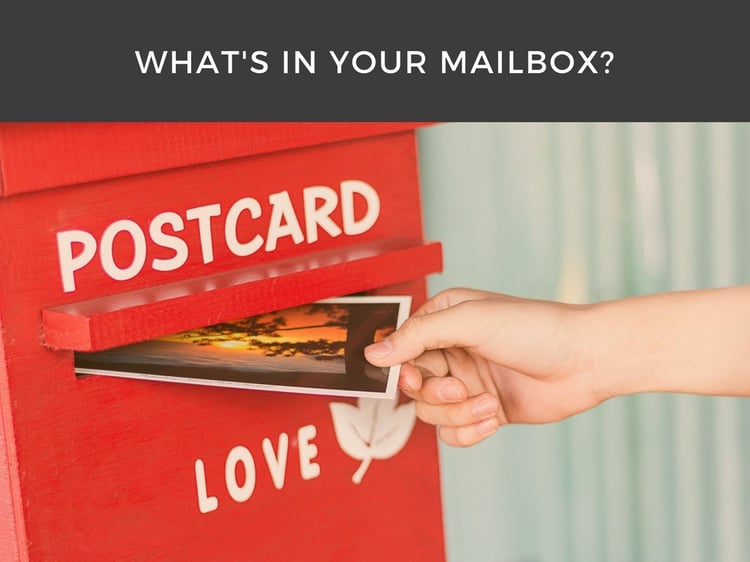
With much of the marketing world focusing on digital methods of consumer engagement, there’s a sizable opportunity to gain market share via direct mail. But the decreased competition for mailbox space is just one small factor in the power of direct marketing. Modern technology makes it easy for you to use individualized marketing strategies to fuel your direct mail efforts, enabling you to have the best of both worlds. One of the most natural avenues for this type of direct mail synergy is programmatic postcards, which can significantly boost the effectiveness of your marketing spend.
Connecting Digital with Direct Mail
One of the major challenges faced by today’s marketers is appealing to young people. The common perception is that this audience prefers digital messages to reflect their technology-based lifestyle. However, the numbers show that this isn’t entirely accurate. In fact, the response rate for direct mail among people aged 18 to 21 years is 12.4 percent, which is higher than the response rate of consumers between 21 and 44 years old. What’s more, this figure has increased dramatically in recent years, and it may continue to rise even further in the future, as long as marketers provide relevant, individualized direct mail communications.
Audience selection is a vital part of marketing, and it’s every marketer’s responsibility to put their marketing materials in front of the people who are most likely to react to them. If you’ve been viewing young people in strictly digital terms, direct mail isn’t much of a stretch. The two mediums are actually linked much more closely than you might think.
Many companies currently use automated emails to keep in touch with their customers. This is especially true when companies think an individual may be close to making a purchase. For example, Amazon typically emails a consumer when they look at an item without buying it. It’s a non-invasive reminder that the consumer had an item on their mind and that they may want to come back and complete the purchase. Direct mail allows you to carry out a similar action with the use of programmatic postcards.
Using programmatic postcards, you can set up prompts that will trigger the automated mailing of postcards to the homes of people who are ready to buy. It provides the reach and responsiveness of direct mail, with the real-time data-driven approach commonly seen in digital marketing, giving you a truly powerful one-two punch. Best of all, you can use the digital data mining tactics you already use, but you’ll have an even more effective way of reaching out to your most important customers at just the right time.
Postcards and Individualization
By their definition, programmable postcards are made-to-order, individualized marketing messages to consumers. There’s nothing cookie-cutter about a sales presentation that focuses exactly on what a customer wants, when they want it. It’s hard to get more individualized than that.
If there’s something the consumer wants above all else, it’s to be truly understood by the businesses he or she supports. The customer experience is just as important as the product itself, and if the customer doesn’t have a positive experience, they’ll seek out a different company the next time they’re ready to make a purchase. Additionally, programmatic media of all forms is becoming more and more commonplace, with half of all display marketing expenditures being dedicated to programmatic marketing, according to the Direct Marketing Association. Therefore, anything you can do to get ahead of the pack — while simultaneously pivoting your marketing towards a less cluttered landscape — can only help you to stand out in the marketplace.
That’s why programmatic postcards are the perfect solution for 2017 and beyond. They provide a truly individualized approach at a time when individualization has never been more important. Instead of delivering a common message to your entire audience, you can now give your audience the direct interaction they deserve, while also showing these individuals how well you know and understand them. It’s a win-win for any company that wants to stay relevant in the digital age. No matter what industry you work in, programmatic postcards can give you the individual touch you need to enhance the customer experience.
Postcards and Customer Re-Engagement
A name that exists in a company’s active file, but has no current data behind it, provides no new actionable insights. Everyone knows that data and the understanding of customers dictate a company’s ability to reach people on an individual level. So how do you, as a marketing director, develop a sufficient data set that allows you to get to know a lapsed customer well enough to market to them individually?
Fortunately, programmatic postcards give you the ability to do exactly this. While we know that data rules in modern-day marketing, we also know that direct mail has a much greater response rate than any digital form of marketing. Even better than that, a study by the U.S. Postal Service states that the average response rate for direct mail pieces sent to former customers of a given brand is 18.4 percent. Not only is this response rate astonishingly high, but it’s only a few percentage points off what that number was in 1987, when the market wasn’t nearly as fragmented.
There are two major takeaways here. First, direct mail is your avenue for reaching these former customers. Once you reach out to them, you can start to develop the data necessary to truly bring these individuals back into the fold. Second, you can begin your approach by using programmatic postcards. The cost-effectiveness of postcards makes this a far more natural medium for reaching out to a lapsed customer than a catalog that’s expensive to produce and send. Furthermore, you can use a QR code or a custom URL to track that individual’s response to your postcard. It’s the perfect marriage of digital data collection with the effectiveness of traditional direct mail.
Businesses have traditionally tried to leverage past order histories in order to pitch former customers. Predictably, these efforts can only go so far in an age when your customers expect an individualized experience with every interaction with your company. In order to really reach your audience, you have to know what they want now. Programmatic postcards move you much closer to re-engaging customers than anything that’s come before, giving you the opportunity to get to know these consumers all over again.
Programmatic Postcards: A Winning Proposition for Everyone
When you think about what customers seek in a business, it’s clear that programmatic postcards are the ultimate solution. This medium shows consumers that you care about them, and it does so in a way that doesn’t get lost in the clutter of emails or social media posts. For your business, programmatic postcards allow you to reach out to consumers in a way that gets their attention and that has a much higher response rate than digital means. Programmatic postcards represent a persuasive tool for customers and an innovative and affordable way for businesses to increase their reach. It’s a winning proposition for everyone.


Lookalike Audiences Enhance customer acquisition by identifying high-potential prospects, boosting response rates, and lowering advertising costs.
Retargeting Postcards Double the performance of your direct mail retargeting.
Amplify Recognize unknown visitors who are actually customers. Add 20-40% to your ESP/CRM campaigns.
IQ Mail Retain customers with personalized, timely messages for those opting out of digital channels.







Comments